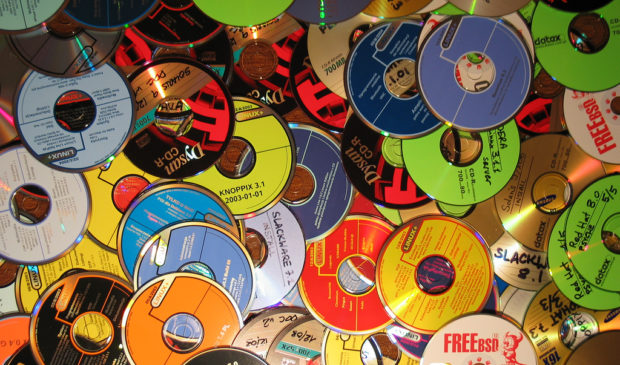Austin libraries not giving up on CDs
Friday, August 5, 2016 by
Jack Craver Even in the Live Music Capital of the World, there are undoubtedly plenty of people who haven’t bought a physical music album in years. All Austinites, however, continue to buy compact discs through their taxes.
On Thursday, City Council approved a contract with a vendor to provide thousands more music albums to the city’s 22 public libraries. The city will pay Midwest Tape LLC $450,000 for a three-year contract, and it may extend the contract for an additional three years, for a total of $900,000.
Council Member Sheri Gallo was puzzled as to why, given the popularity of digital music – which she was happy to note the library system has fully embraced – the city would spend nearly $1 million on 1990s technology.
Library staff explained that there is still plenty of demand for CDs, in spite of the success of downloadable and streaming services offered by the system. Sandra Cannon, who oversees the library’s purchasing and cataloging operations, estimated that customers access roughly 95,000 digital music products per month, but they still take out around 20,000 CDs and DVDs.
“Our physical items address the needs of many of our customers that don’t have access to computers,” she said.
The library also makes a special effort, she said, to include hard and digital copies of albums by local musicians.
Gallo did not object further to the proposed contract, but she said she would abstain from the vote on its approval because she was concerned that there were other critical needs, particularly for library branches in her district, that were being unaddressed. She cited aging libraries that lack restrooms compliant with the Americans with Disabilities Act and still have not removed asbestos insulation.
“It’s not that I’m saying that this is not worthwhile,” she added, but Council needs to “make tough choices” about where limited library dollars should go.
Council Member Don Zimmerman certainly did not see the issue as a tough choice. The very fact that the public library would purchase music that a citizen could purchase elsewhere – Waterloo Records, for instance – appeared to infuriate him.
“What offends me about this, is this is another perfect example of government subsidizing a business – and competing with people who are providing new and used CDs and what have you,” he said.
Zimmerman also appeared to be unaware that the library lends its items to the public for free. After denouncing the concept of the city government acting like a company that “rents” CDs, he asked staff how much citizens pay for the services.
“Nothing,” responded Cannon.
That revelation only upset Zimmerman further.
“So what’s happening is the library is competing with private business to meet a demand at the taxpayers’ expense,” he said. “I mean, in principle, this is completely wrong.”
He added that he would be “enthusiastically voting no” on the contract.
Mayor Pro Tem Kathie Tovo responded that she would be “enthusiastically voting yes” and noted that the logical conclusion of Zimmerman’s reasoning would be the end of public libraries, an argument that her conservative colleague did not rebut.
Council Member Leslie Pool also added that the concept of libraries offering people free stuff was nothing new.
“America has a long tradition of public lending libraries,” she said. “It goes back a long time, and it’s a core value of our nation.”
The contract was easily approved, 8-2-1, with Zimmerman and fellow conservative Ellen Troxclair voting no, and Gallo abstaining.
“My vote was to support directing our limited resources to addressing safety and improvement issues at our neighborhood libraries,” said Gallo in a statement to the Austin Monitor. “If your house had a leaky roof, you would fix that before you upgraded your stereo.”
Asked whether she prefers CDs or digital music, Gallo responded through a spokesman that she listens to the radio.
Photo by Maciej Bliziński from Dublin, Ireland (Obsolete CDs) [CC BY-SA 2.0], via Wikimedia Commons.
The Austin Monitor’s work is made possible by donations from the community. Though our reporting covers donors from time to time, we are careful to keep business and editorial efforts separate while maintaining transparency. A complete list of donors is available here, and our code of ethics is explained here.
You're a community leader
And we’re honored you look to us for serious, in-depth news. You know a strong community needs local and dedicated watchdog reporting. We’re here for you and that won’t change. Now will you take the powerful next step and support our nonprofit news organization?






